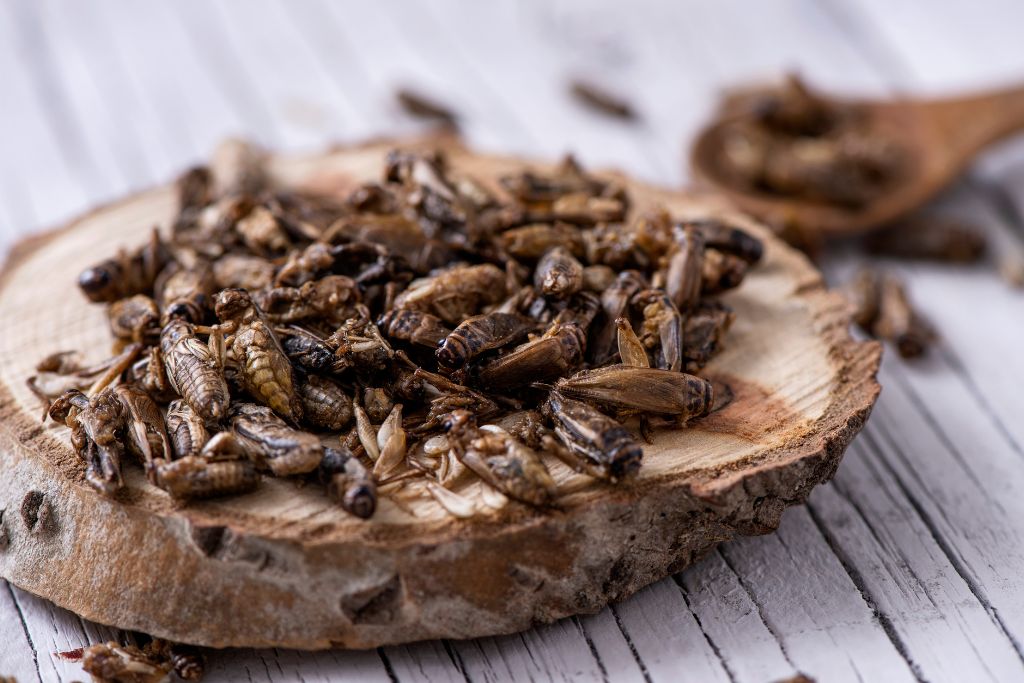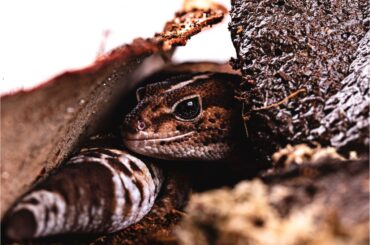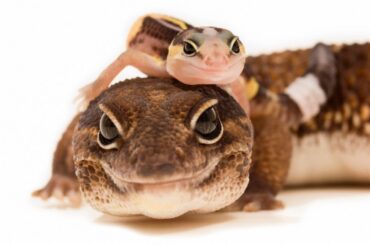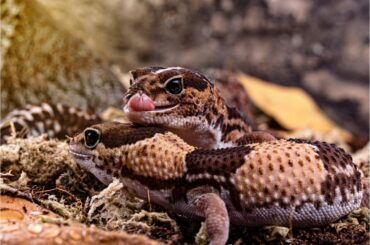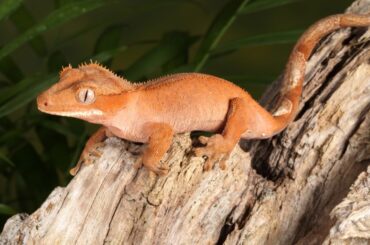Wondering what to feed your leopard gecko besides the usual insects? Curious about how to spice up their diet while keeping them healthy? You’re not alone; many pet owners are on the hunt for diverse meal options for their scaly friends.
Leopard geckos primarily eat insects, but a varied diet can benefit their health and well-being. Just like humans, these reptiles thrive on a mix of nutrients. Offering different food items keeps them interested and ensures they get a well-rounded set of vitamins and minerals.
So, let’s dive into the world of leopard gecko cuisine and explore some tasty alternatives to insects.
Understanding Leopard Gecko Nutritional Needs
Ready to become a leopard gecko diet expert? Knowing what nutrients your pet needs is the first step. Let’s break down the essentials.
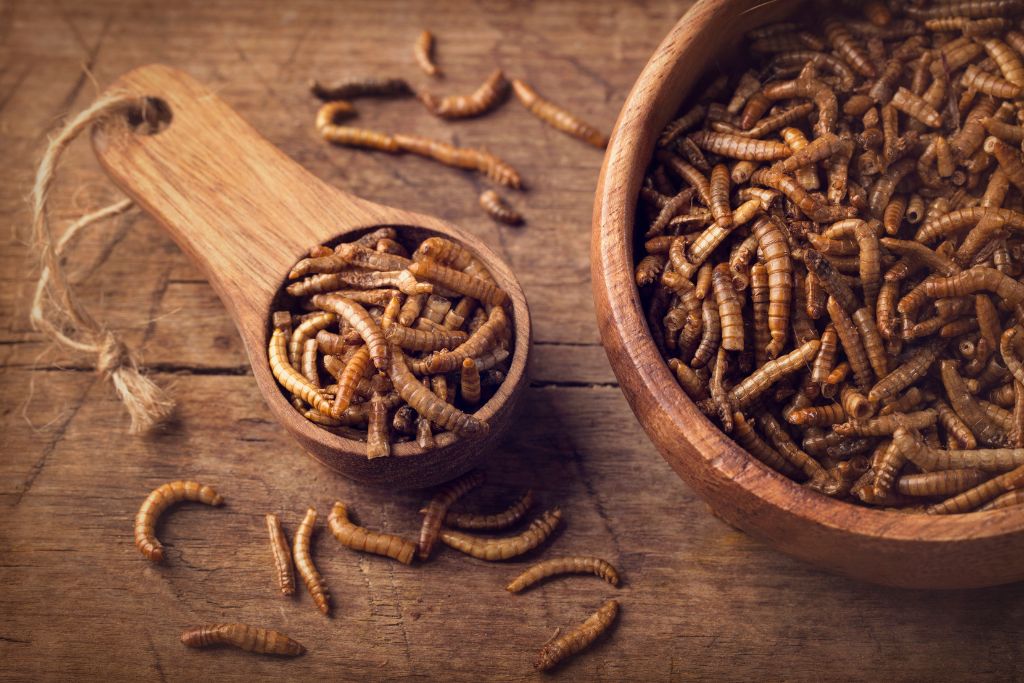
Protein
Protein serves as the building block for muscles and tissues in leopard geckos. Insects, like crickets, mealworms, and Dubia roaches, are excellent protein sources. However, it’s crucial to gut-load these insects with nutritious food before offering them to your gecko. This process enhances the insects’ nutritional value.
Fat
Fat is an energy source for your leopard gecko but should be given in moderation. Too much fat can lead to obesity, while too little can cause energy deficits. Waxworms and butterworms are fatty treats that should be offered sparingly. Balance is key.
Vitamins
Vitamins like A, D3, and E are essential for a leopard gecko’s well-being. Vitamin A supports vision and immune function, while D3 helps in calcium absorption for bone health. You can dust the insects with a vitamin supplement to ensure your gecko gets what it needs.
Minerals
Calcium and phosphorus are the primary minerals that your leopard gecko requires. Calcium is vital for bone formation, and phosphorus aids in energy transfer. However, an imbalance in the calcium-to-phosphorus ratio can lead to metabolic bone disease. Therefore, it’s essential to maintain a balanced diet.
Fiber
While not a significant part of their diet, some fiber can aid digestion. Small amounts are usually ingested when they consume insects. Just make sure the insects are gut-loaded with fibrous veggies.
Water
Hydration is often overlooked but is vital for leopard geckos. Fresh, clean water should always be available. It aids in digestion and helps regulate body temperature.
Antioxidants
These compounds help fight off free radicals in the body, supporting overall health. While not commonly discussed, antioxidants can be part of a leopard gecko’s diet through vitamin-rich foods and supplements.
Omega Fatty Acids
Omega-3 and Omega-6 fatty acids support skin health and cognitive function. While not a staple in their diet, these fatty acids can be introduced through special supplements or specific insect diets.
Incorporating Variety for Health
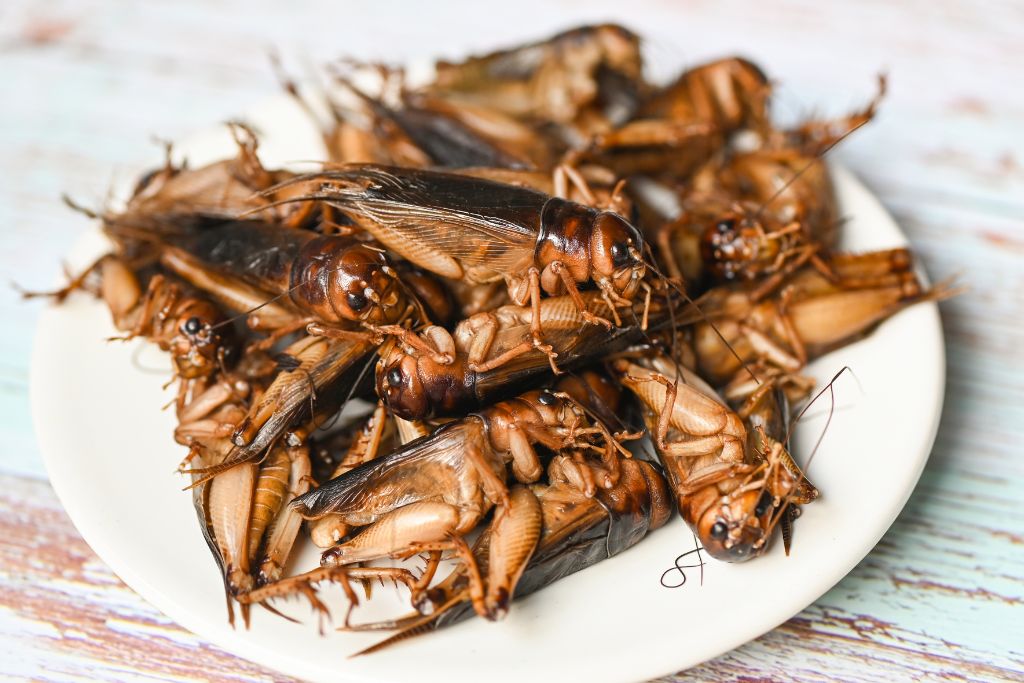
Offering a mix of foods to your leopard gecko is more than just a treat; it’s a health necessity. A varied diet helps prevent nutritional deficiencies and keeps your pet physically fit. For example, relying solely on one type of insect can lead to gaps in essential nutrients like calcium or vitamins.
Switching up the menu also keeps your gecko mentally stimulated. Imagine eating the same meal daily; you’d get bored, right? The same goes for your pet. Different textures and flavors engage their senses, making mealtime more enjoyable. So, keep that menu diverse for a happy and healthy leopard gecko!
Leopard Gecko Food Alternatives
Ready to explore some alternative food for leopard gecko? While insects are the mainstay, other choices can add variety and extra nutrients. Let’s dig into some tasty and healthy alternatives.
Commercial Gecko Diets
Pet stores sell commercial gecko diets tailored for your leopard gecko’s nutritional needs. You can mix this powdered food with water to make a paste. While convenient, they shouldn’t wholly replace live insects. Use them as a supplement to ensure your gecko gets a balanced diet.
Fruit and Vegetable Supplements
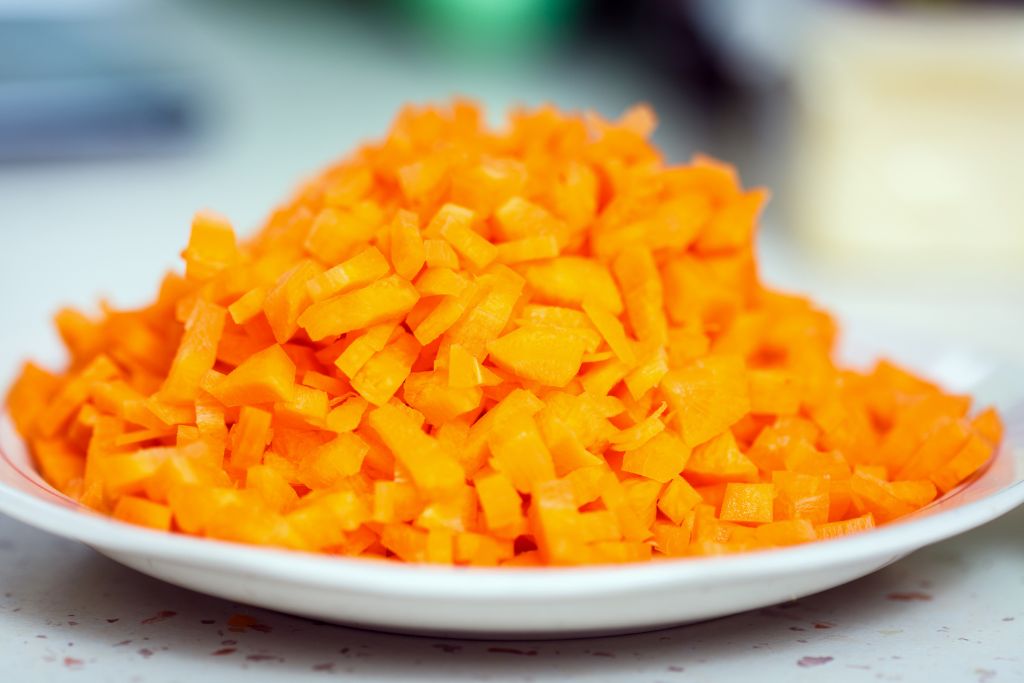
Believe it or not, some fruits and veggies can be a hit with your leopard gecko. Safe options include small amounts of apple, pear, and melon. For veggies, try offering finely chopped carrots or peas. Remember, these should only be occasional treats. Too much fruit can lead to digestive issues due to the sugar content.
Calcium-Rich Foods
Calcium plays a significant role in keeping your leopard gecko healthy. It’s crucial for bone development and muscle function. One way to ensure your gecko gets enough calcium is by dusting insects with calcium powder before feeding.
You can also offer calcium-rich purees from foods like collard or turnip greens. These can be a tasty and nutritious addition to their diet.
Feeding Techniques and Tips
Ready to become a pro at feeding your leopard gecko? Knowing the proper techniques can make a big difference. Let’s dive into some practical tips to make mealtime a success.
- Portion Control: Offer small portions of alternative foods, like fruits or veggies. A piece the size of your gecko’s head is a good measure.
- Frequency: Limit non-insect foods to once a week. Too much can disrupt their digestive system.
- Insect Staple: Keep insects as the main part of the diet. They provide essential nutrients, like protein and fat.
- Gut-Loading: Feed insects nutritious food 24 hours before offering them to your gecko. This boosts their nutritional value.
- Calcium Dusting: Coat insects with calcium powder at least once a week to ensure strong bones.
- Hydration: Always have fresh water available. It aids in digestion and overall health.
- Temperature: Warm up the food to room temperature. Cold food can cause digestive issues.
- Hand Feeding: Use tweezers to offer food. It helps with portion control and minimizes the risk of biting.
- Food Rotation: Rotate the types of insects and alternative foods you offer. Variety prevents boredom and nutritional gaps.
- Observe and Adjust: Watch how your gecko reacts to new foods. If they don’t like something, don’t force it. Try something else instead.
Monitoring Health and Adjusting Diet
So, you’ve spiced up your leopard gecko’s diet, but how do you know it’s working? Monitoring your pet’s health and behavior is crucial. Let’s look at ways to ensure the new diet suits your gecko.
- Weight Check: Keep an eye on your gecko’s weight. Sudden changes could signal a problem with the diet.
- Activity Level: A healthy gecko is an active one. If you notice less movement, it might be time to reassess the food you’re offering.
- Skin and Scales: Check for vibrant, smooth skin. Dull or flaky skin can indicate a lack of essential nutrients.
- Poop Patrol: Yes, it’s a bit gross, but the appearance of their droppings can tell you a lot about their health. Look for well-formed, consistent poop.
- Appetite: Pay attention to how eagerly your gecko eats. A sudden loss of appetite could mean it’s time for a diet adjustment.
- Behavior: Watch for signs of stress or discomfort, like hiding more often. This could be a reaction to a new food item.
- Consult a Vet: If you’re unsure or notice any red flags, consult a veterinarian experienced with reptiles. They can provide expert guidance on diet and health.
- Trial and Error: It’s okay to experiment. Just introduce new foods gradually and observe how your gecko reacts.
- Hydration: Keep an eye on the water dish. If it’s emptying faster or slower than usual, this could indicate a dietary issue.
- Record Keeping: Keep a food diary to track what you’ve offered and how your gecko responded. This can be helpful information for both you and your vet.
Conclusion
A balanced and varied diet is crucial to your leopard gecko’s health and happiness. From insects to fruits and commercial diets, options abound. But remember, each gecko is unique. For personalized advice, consult a veterinarian or reptile expert to ensure you meet your pet’s nutritional needs.
FAQs
What Else Can Leopard Geckos Eat?
Mealworms, Dubia roaches, and waxworms are good alternatives.
What is Everything I Can Feed My Leopard Gecko?
Insects, some fruits, veggies, and commercial gecko diets comprise the list.
What Do Leopard Geckos Prefer to Eat?
They usually prefer live insects, like crickets and mealworms.
Can Leopard Geckos Eat Boiled Eggs?
No, boiled eggs are not recommended for leopard geckos.

